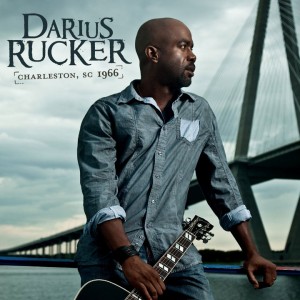An upbeat record from former Blowfish
Darius Rucker is well on his way to becoming a country sensation and a household name if his third solo album, Charleston, SC 1966, is anything to go by. The album, which dropped last week, currently sits on top of the iTunes chart.

Birthplace · Taking a cue from Radney Foster’s album Del Rio, TX 1959, Rucker’s new CD takes its title from his place and year of birth. - Photo courtesy of Capitol Records Nashville
Rucker is primarily known as the front man of the rock band Hootie and the Blowfish, but he has shown wantly his country prowess as well. Rucker signed with Capitol Records Nashville in 2008, several years after embarking on his solo career, and released the highly successful Learn to Live at that time — his ticket to platinum record sales.
Now Rucker has released another solid album with several songs destined for the Billboard charts.
Fans of Rucker from his days in Hootie and the Blowfish will appreciate his transition to country, as his voice fits perfectly with the genre, while still retaining the style from his Hootie days..
Charleston, SC 1966 starts off with “This,” a regret-free song about his good and bad times and everything in between. “This” sets the tone for the album. Rucker is well into his solo career. He is grounded, self-confident and optimistic.
Rucker follows up with “Come Back Song,” which is both his first single off the album and another strong, guitar-driven number. In the song, Rucker asks an old flame to return to him.
Although singing about a lost love has been done too many times before, Rucker manages to make his version of it sound lively and fresh with a mid-tempo, breezy and acoustic opening that builds up during the chorus.
Rucker’s vocals are strong without being too deep and blend smoothly with his brand of tradition-influenced new country. Although he was born and raised in South Carolina, his voice only has a dash of a Southern accent, which adds a charming touch to his music.
Another stand out song is “Southern State of Mind” in which Rucker unapologetically references his Southern ways without any of the confrontational animosity that often accompanies songs concerning the same subject.
Instead, the song is dulcet and airy with friendly down-to-earth lyrics that really show Rucker for the Southern gentlemen he truly is, holding doors open for women, and smiling and waving at people in the friendly manner in which he was raised.
Rucker slows the pace of the album a little with the ballad “We All Fall Down,” but he doesn’t digress from his sound. Although the tempo is a bit slower, he still retains the power behind his vocals and the instruments while offering a message of atonement.
Despite the strong vocals, instrumentals and melodies, Charleston, SC 1966 is not a perfect album.
Its main flaw is its deviation into the careless feel-good country music cliché with the song “I Don’t Care,” which is quite suitably titled. The song features seasoned country artist Brad Paisley and utilizes bar-talk to focus primarily on riveting subjects such as which hours are appropriate for drinking beer and not caring if it’s not one of those times.
The song comes in late on the album and serves as a speed bump in the general flow. The song isn’t bad, but it feels a bit obtuse following the contemporary but sincere songs concerning love, the joys of everyday life and Rucker’s comfortable identity as a Southern gentleman.
Charleston, SC 1966 is not a groundbreaking country album, but it is strong, with enjoyable, catchy, well-written and well-executed songs. Rucker’s style is optimistic, and if there’s an album in need of a car CD player, it’s this one.

Comments are closed.